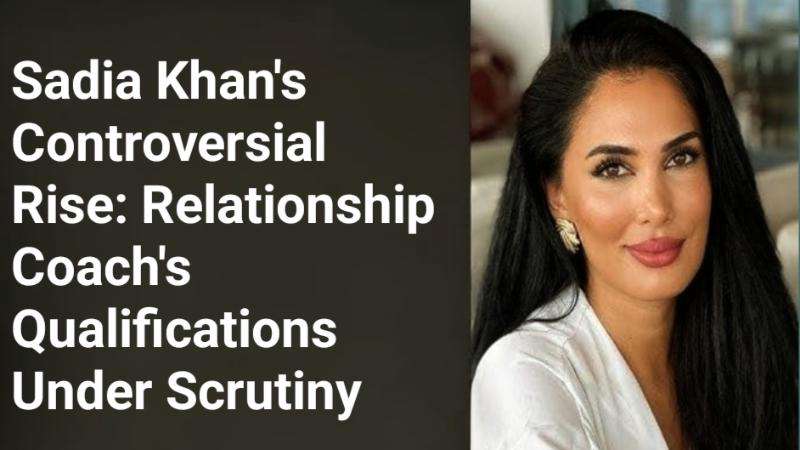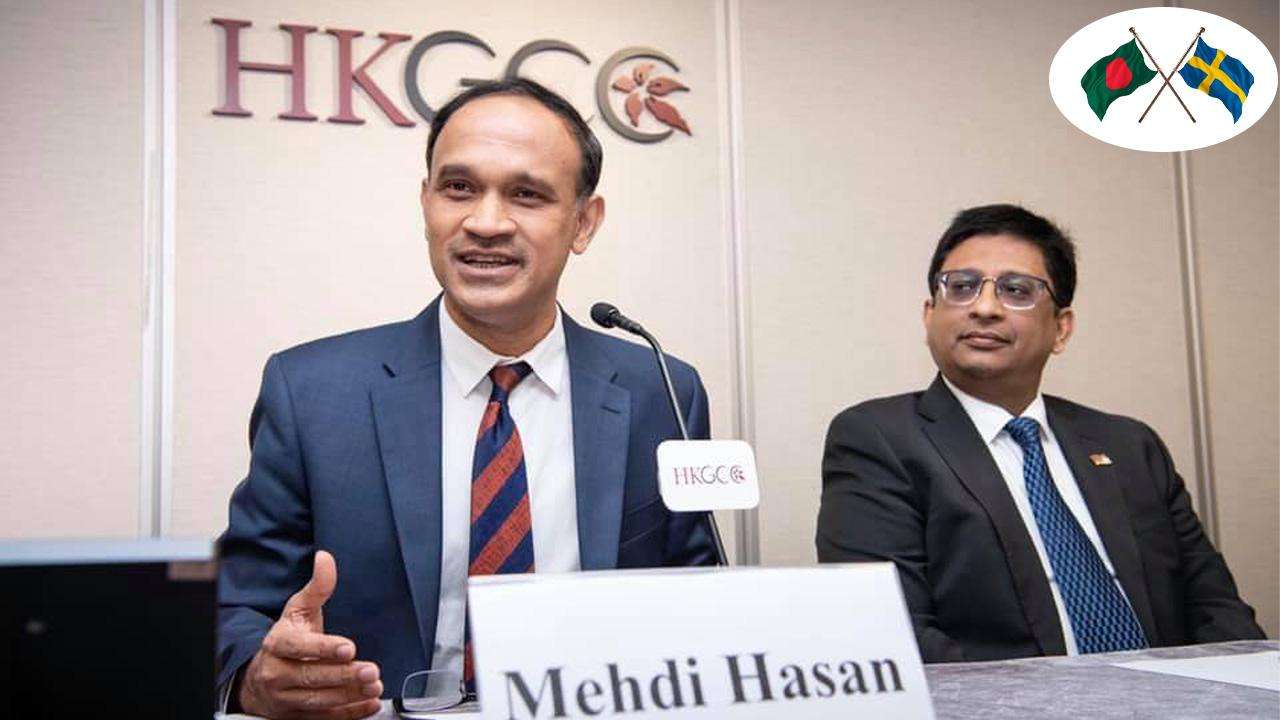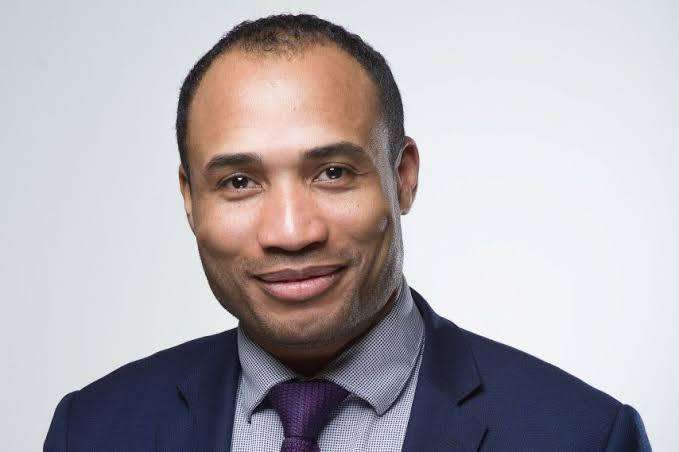Bangladesh should groom skilled workers in the IT, engineering, and healthcare sectors as the northern region of Sweden will have a requirement of 8,00,00 skilled workers over the next 10 years, said Bangladesh Ambassador to Sweden Mehdi Hasan while giving an interview with Imtiaz Ahmed recently.
“Sweden's growing economy, technological advancements, and demographic changes have created a demand for skilled workers in various sectors. This presents a significant opportunity for skilled manpower from Bangladesh. While the specific demand for skilled workers may vary over time, historically, Sweden has had many vacancies in the IT, engineering, and healthcare sectors,” said the Bangladesh diplomat.
Mehdi Hasan is a career diplomat belonging to the 17th batch of the BCS (Foreign Affairs) cadre.
In his diplomatic career, he served as the Consul General in Hong Kong and Counsellor in Manama. He also served at Bangladesh Missions in Moscow and New Delhi in different capacities.
Mehdi Hasan did his Bachelor of Science in Civil Engineering and Masters in Water Resource Engineering from Bangladesh University of Engineering & Technology (Buet).
He obtained a Diploma (Masters) in International Relations from the International Institute of Public Administration in Paris.
The rest part of the interview is given below:
1. Bangladesh became a middle-income country in 2021. How Sweden sees the economic success of Bangladesh during the last 50 years?
Sweden was among the first nations to recognise Bangladesh as an independent country in 1971. It also provided moral and material support during the war. Since the early days of Bangladesh, Sweden has played a significant role in its development.
Over the past few decades, Bangladesh has made remarkable progress in its economy. In the last 14 years, the country has achieved significant success in various socio-economic sectors. Its transition to a middle-income economy is a testament to its achievements in many areas including agriculture, textiles, manufacturing, and services. Notably, Bangladesh is currently the world's second-largest exporter of garments.
For the past 50 years, Bangladesh and Sweden have collaborated in numerous areas, including poverty reduction, education, healthcare, social welfare, climate change, environment, renewable energy, sustainable urban planning, disaster risk reduction, trade and investment promotion, gender equality, women's empowerment, IT, digitalization, and innovation capacity-building. Recently, there has been a focus on seeking green economy, sustainable solutions, and circular economy.
Sweden has viewed Bangladesh's economic growth over the past 50 years as an opportunity to increase trade and investment. The middle-income status indicates a growing consumer market and strong business partnerships. The economic success of Bangladesh has further strengthened bilateral relations between the two countries, leading to deeper diplomatic ties and collaborations in various fields.
Prominent Swedish brands such as H&M, Lindex, KappAhl, Ericsson, IKEA, Volvo Group, Scania, Tetra Pak, Electrolux, and Securitas have a significant presence in Bangladesh. For example, H&M alone accounts for approximately 10% of Bangladesh's exports of readymade garments amounting to around 3 billion dollars out of the total 40 billion dollars. Ericsson, one of the world's largest and most renowned telecommunications companies, also has a strong presence in Bangladesh.
Naturally, Bangladesh has become a crucial trading partner for Sweden, both as a source for global exports of Swedish companies and as a significant market for them. Sweden recognizes and values the importance of its trade and development partnership with Bangladesh. Consequently, Sweden is now transitioning its relationship with Bangladesh from development to a trade partnership.
2. Export basket of Bangladesh is heavily dependent on ready-made garments. How can Sweden help Bangladesh diversify its export basket?
The global textile market is undergoing a significant shift from natural fibers like cotton to man-made fibers that are more sustainable, circular, and eco-friendly. Man-made fibers, especially those made from recycled materials or renewable sources, have gained popularity due to their potential environmental benefits. According to Statista, the production of textile fibers worldwide has increased from 24 million metric tons in 1975 to over 113 million metric tons in 2021. Natural fibers like cotton and wool accounted for 25.4 million metric tons, while chemical fibers made up the remaining 88.2 million. This shift indicates a clear move towards a sustainable and eco-friendly model in the global textile market.
This shift presents an opportunity for the Bangladeshi garment industry to diversify by adopting sustainable, green, and circular economic models to align with global trends and market demands.
Bangladesh is also experiencing significant growth in the technology sector. The Digital Bangladesh Vision 2021 has been successful in bringing about societal changes, particularly in governance and service sectors. Examples of this societal transformation include the rapid growth of mobile financial services, with over 112 million clients, and Bangladesh becoming the second-largest supplier of online workers and freelancers.
Sweden, known for its leadership and expertise in various industries such as innovation, IT, and technology, can play a significant role in diversifying Bangladesh's export basket. Sweden has a strong reputation for sustainable fashion expertise and advanced skills in IT, technology, and development. The country has been at the forefront of adopting innovative practices and technologies that promote sustainability in the fashion industry, including sustainable design and materials, circular fashion, transparency, ethical practices, green innovation hubs, sustainable supply chains, and innovative technologies like digital design tools, 3D printing, and laser cutting to minimize waste and optimize production processes. Collaboration between Sweden and Bangladesh in energy-efficient, low-emission green technologies for the textile sector can increase the share of sustainable textile manufacturing in Bangladesh, enhancing its global competitiveness.
Sweden also has a thriving tech ecosystem and a history of innovation in various fields. Key sectors where Sweden excels in IT, technology, and development that are relevant to Bangladesh include ICT and telecom, startups and entrepreneurship, sustainable technology (renewable energy, smart cities, eco-friendly transportation), digital transformation, e-commerce and retail tech, AI and machine learning, health tech, IoT and connectivity, and STEM education, as well as cybersecurity.
3. Bangladesh-Sweden bilateral trade has crossed several hundred million US dollars. What is our target to reach bilateral trade within the next five years?
Bangladesh holds significant importance as a growing trade partner for Sweden. The two countries have a long-standing relationship dating back to Bangladesh's independence, with development cooperation being a key aspect of their bilateral ties. However, as both nations have progressed, their relationship has evolved into a multifaceted, dynamic, and expanding partnership. Trade and investments between Sweden and Bangladesh have experienced positive growth.
There is great potential for further trade expansion between Sweden and Bangladesh due to mutual benefits. Sweden's positive reputation as a sustainable, innovative, and environmentally friendly country plays a crucial role in promoting Swedish industries in Bangladesh, particularly in sectors such as energy, environment, paper pulp, and leather products. Additionally, there are opportunities for trade growth in textiles, ready-made garments, ICT, and pharmaceuticals. Furthermore, Swedish companies can take advantage of the flourishing digital landscape in Bangladesh, which includes thriving e-commerce, e-governance, digitalization, and online labor.
Over the years of collaboration, Sweden and Bangladesh have established a strong foundation for their relationship to continue growing and strengthening in the future. The trade growth trends in the past few years suggest the bilateral trade volume to cross one billion USD soon.
4. Under the Blue Card policy, the EU has agreed to recruit non-EU citizens. How are EU member countries responding to the EU Blue Card policy? Can Sweden member countries recruit more skilled Bangladeshi manpower, especially doctors, engineers and nurses?
The Blue Card policy is part of the EU's overall policies and is also applicable in Sweden, a EU member country.
Sweden's growing economy, technological advancements, and demographic changes have created a demand for skilled workers in various sectors. This presents a significant opportunity for skilled manpower from Bangladesh. While the specific demand for skilled workers may vary over time, historically, Sweden has had many vacancies in the IT, engineering, and healthcare sectors.
Specifically, in the northern regions of Sweden, there is a significant shortage of human resources and skills. This is primarily due to rapid and substantial industry expansion in areas such as mining, battery manufacturing, hydrogen, and sustainability projects. Over the next 10 years, the demand for skilled manpower in the entire northern region of Sweden is estimated to be around 800,000. These vacancies include roles in hydrogen production, battery technology, steel production, process technology, engineering, sustainability specialists, and various other fields. Additionally, there is a need for schoolteachers, healthcare professionals, doctors, dentists, supervisors, and more. In these northern regions, there is also an opportunity for Bangladesh to establish business partnerships with small and medium-sized Swedish companies looking to expand their exports to Bangladesh. This presents an important opportunity to connect Swedish businesses with local Bangladeshi companies.
Clearly, the northern regions of Sweden and their significant demand for skilled manpower present a substantial opportunity for Bangladesh. Bangladesh has the potential to provide the necessary human resources and skills to fill a significant portion of these vacancies.
5. Bangladesh will graduate out of the LDC status in 2026. Will Sweden give GSP plus privilege to Bangladesh after LDC graduation?
EU oversees the GSP issues
6. What is the number of Bangladeshis living in Sweden as of July 2023?
According to Statistics Sweden, the number of regular Bangladeshis living in Sweden as of July 2023 is 19662 (nineteen thousand, six hundred sixty-two).



_2.jpg)
_1.jpg)



.svg)

